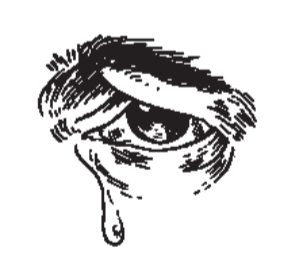I. INTELLIGENT SUFFERINGHe speaks truly who speaks the shade.
—Paul Celan
He speaks truly who speaks the shade.
—Paul Celan
In the spring of 2000 I spent my final semester at Drew University studying the three behemoths of modern American drama: Eugene O’Neill, Tennessee Williams and Arthur Miller. The instructor had arranged for our class to attend the new Broadway production of A Moon for the Misbegotten with Gabriel Byrne and Cherry Jones; it would be my second O’Neill play in just six months. The semester before I had been to Manhattan to see the two most acclaimed revivals in New York: Kevin Spacey in The Iceman Cometh and Brian Dennehey and Elizabeth Franz in Death of a Salesman. It was a rare treat to experience these dramas in a Broadway theater with a Broadway audience, and a rare opportunity to gain a fuller appreciation of their beauty and trauma. The paradoxical effect was not lost on me, and, in fact, I welcomed it: I was willing to endure the trauma for the promise of something beautiful.
But each performance left me jaded, disturbed and incapable of recognizing any beauty whatsoever. There was an onerous weight in my heart and bones; I became oblivious to the lights of Midtown, dragging my boots across the concrete and asphalt. They were each of them some of the most grievous hours I had ever sat through. When the cast of Salesman did its curtain call, Dennehey and Franz were so shaken and tearful they could barely bow, Franz had to be helped from the stage and I had to be literally jarred out of my sorrowful stupor. When Byrne’s character, Jamie Tyrone, walked off the stage in the last scene of Misbegotten—to drink himself to death, to forsake the light of day and the woman he loves—I actually glanced around for a corner to cry in, certain sobs would overcome me. Like a hero of Greek drama, Jamie’s entire life had ineluctably moved toward this very moment, the moment he realizes he cannot continue another day. When Spacey’s character, Hickey, admitted to killing his wife to save her from the shame and humiliation of his infidelity and incessant pipe dreams, the man’s doom was so palpable the emotion tugged at the back of my throat. Like Jamie Tyrone, Hickey’s entire life had been a lie.
Though I felt bereaved, drained and in-over-my-head, this was, I figured, intelligent suffering. There was a wisdom and a resonance in these characters and situations, and aside from being completely absorbed into the dramas, saddened like never before, I felt as if I was learning something invaluable about the defeat and triumph...
You have reached your article limit
Sign up for a digital subscription and continue reading all new issues, plus our entire archives, for just $1.50/month.
Already a subscriber? Sign in





